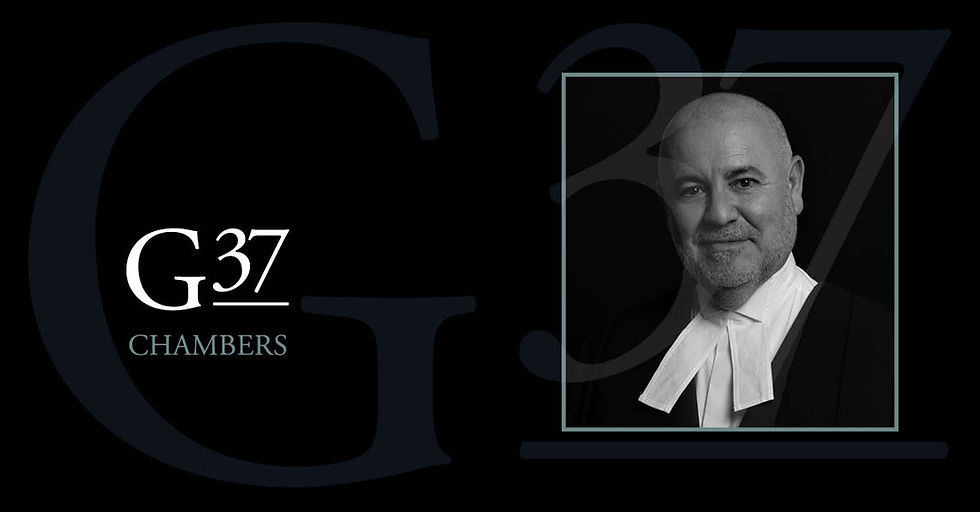International Legal News
- Rafael EPORT STUDIO
- Aug 4, 2020
- 3 min read
Weekly update: 30 July – 03 August.
The following media round up of international legal and foreign policy issues from around the world for the period 30 July – 03 August.
The Guernica Group will provide weekly media updates from the International Criminal Court, European Court of Human Rights, United Nations, European Union and other sources. Should you wish to contribute or submit a media summary, opinion piece or blog, please send to Nenad Vucijak for consideration.

UN International Residual Mechanism for Criminal Tribunals (UN MICT) – 29 July On 17 July 2020, the Appeals Chamber of the International Residual Mechanism for Criminal Tribunals issued a scheduling order for the appeals hearing in the Mladic case. In November 2017, Trial Chamber I convicted Mr. Ratko Mladic of genocide, crimes against humanity and war crimes and sentenced him to life imprisonment. Both the Prosecution and Mladic filed appeals against the Trial Judgment. The appeals hearings are scheduled for 25 and 26 August 2020.
Croatia – 30 July
The cases of Kirincic and Others v. Croatia (application no. 31386/17) and Maric v. Croatia (no. 9849/15) concerned complaints about violations of the right to a fair trial within a reasonable time and the lack of effective domestic remedies for such complaints. Remedies for excessive length of proceedings in Croatia were found by the European Court of Human Rights to be largely ineffective between March 2013 and May 2019.
Iran – 30 July
On 30 July, the UN High Commissioner for Human Rights, Michelle Bachelet, said that she was alarmed by the Iranian Government’s increased pressure on a prominent civil society group working on poverty and social protection, and the arrest of its founding member. Iranian authorities have pressured Imam Ali Popular Students’ Relief Society (IAPSRS) to change its structure, in what appears to be an attempt to close down the organisation.
Belarus – 30 July
On 30 July, the capital of Belarus witnessed the largest opposition protest since the fall of the Soviet Union. Perhaps 70,000 people turned out in Minsk against their authoritarian leader, Alexander Lukashenko, to offer support for unity opposition candidate Svetlana Tikhanovskaya.
Hong Kong – 31 July
Human Rights Watch calls upon foreign ministries to reject the new National Security Law that China imposed on Hong Kong and to act to uphold human rights in the city, in an open letter from 17 nongovernmental organisations.
Zimbabwe – 31 July
Zimbabwean authorities have thwarted a peaceful anti-corruption protest which was planned for 31 July and launched a witch-hunt against political and human rights activists suspected of being behind the planned demonstration, according to Amnesty International. A number of activists have gone into hiding after police published a list of names of human rights defenders who are wanted for questioning in connection with the planned protests. A number of opposition leaders are also understood to be wanted by the police, while six others have already been arrested.
UK – 31 July
The case of runaway Shamima Begum, who is fighting to return to the UK from Syria, will go to the Supreme Court. The Court of Appeal decided that the case raised a point of law of public importance that only the Supreme Court can resolve.
Afghanistan – 03 August
At least 29 people have been killed in ongoing fighting between Afghan security forces and gunmen who raided a jail overnight in an attack claimed by the ISIL (ISIS) group, according to officials. Among the dead were prisoners as well as civilians, prison guards and Afghan security personnel, Attaullah Khogyani, a spokesman for the governor of Nangarhar province, told Al Jazeera.
Mali – 03 August
Five soldiers have been killed in central Mali after twin attacks by suspected Islamist militants. Mali’s army tweeted that a military convoy was attacked between Gamacoura and Diabaly, while a second attack staged at the military camp in Gamacoura.
Togo – 03 August
A prominent Catholic bishop and a priest in Togo have been told they were targeted by spyware made by the private surveillance firm NSO Group, in the first known case of its kind involving members of the clergy. A joint investigation by the Guardian and the French newspaper Le Monde can reveal that Bishop Benoit Alowonou and five other critics of Togo’s repressive government were alerted by WhatsApp last year that their mobile phones had been targeted with the spying technology.







